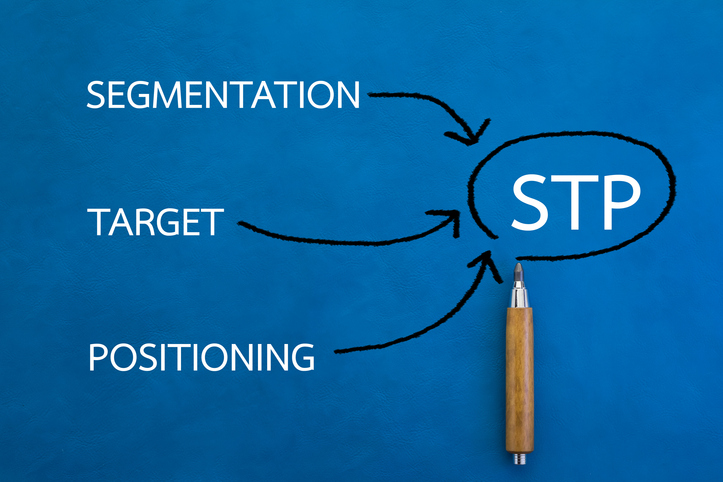3 min read
Top Strategies for a Successful E-Commerce Store
E-commerce has grown to exponential limits in recent years, and that turned the market into an even more competitive place. As the inclination of...
4 min read
![]() The Amazing Team at Focus Digital Marketing
:
May 14, 2024 9:00:00 AM
The Amazing Team at Focus Digital Marketing
:
May 14, 2024 9:00:00 AM
The Evolution of Digital Marketing: Shaping the Future of Business
Introduction
In the digital age, where technology has become an integral part of our lives, businesses are constantly adapting to stay relevant and maintain a competitive edge. Digital marketing has emerged as an essential strategy that allows businesses to connect with their target audience, expand their online presence, and drive business growth. This article aims to explore the definition, history, importance, current trends, and challenges of digital marketing, along with potential solutions, future prospects, and key FAQs to provide readers with a comprehensive understanding of this dynamic field.
Definition of Digital Marketing
Digital marketing refers to the use of digital technologies, such as the internet, social media, search engines, and mobile devices, to promote products and services. Unlike traditional marketing methods, digital marketing allows businesses to reach a global audience, measure the effectiveness of their campaigns in real-time, and personalize marketing messages to suit individual preferences.
History of Digital Marketing
The history of digital marketing can be traced back to the late 1990s when the internet became widely accessible. Initially, businesses utilized basic websites to showcase products and services. As technology advanced, search engines like Google emerged, paving the way for search engine optimization (SEO) and keyword advertising. The rise of social media platforms, such as Facebook and Twitter, in the early 2000s provided new avenues for digital marketing, allowing businesses to engage directly with their target audience.
Importance of Digital Marketing
Digital marketing has become integral for businesses of all sizes due to its numerous advantages. Firstly, it allows businesses to target specific demographics, ensuring their marketing messages reach the right audience. Secondly, it offers cost-effective marketing strategies compared to traditional methods, enabling small businesses to compete with larger enterprises. Thirdly, digital marketing enables real-time tracking and measurement of campaign effectiveness, facilitating data-driven decision-making.
Current Trends in Digital Marketing
Digital marketing is an ever-evolving field, with new trends emerging constantly. Some key trends include:
1. Content marketing: Creating valuable and relevant content to attract and retain customers.
2. Video marketing: Utilizing engaging video content to promote products and services.
3. Influencer marketing: Collaborating with influential individuals to endorse and promote brands.
4. Voice search optimization: Optimizing digital content for voice queries to cater to the increasing use of virtual assistants.
5. Artificial intelligence (AI) and chatbots: Enhancing customer experience through personalized interactions and automated responses.
Challenges in Digital Marketing
Digital marketing faces several challenges that businesses must address to succeed. The most significant challenges include:
1. Algorithm changes: Search engines continuously update algorithms, requiring businesses to adapt their strategies to maintain visibility.
2. Information overload: The vast amount of digital content can make it challenging for businesses to stand out and capture the attention of their target audience.
3. Data privacy: Increasing concerns over data privacy raise the importance of implementing secure practices and obtaining explicit consent from users.
4. Ad-blockers: The rising popularity of ad-blockers reduces exposure to digital advertisements, making it crucial for businesses to find alternative advertising methods.
5. Technological advancements: Rapid technological advances require businesses to continually upgrade their digital marketing capabilities to keep pace.
Solutions to Digital Marketing Challenges
To overcome challenges in digital marketing, businesses can adopt the following solutions:
1. Continual learning: Staying updated on industry trends and best practices to effectively navigate the evolving digital landscape.
2. Personalization: Tailoring marketing messages to individual preferences using data-driven insights to secure higher engagement and conversions.
3. Customer engagement: Building interactive communities and fostering engagement through social media campaigns and chatbots.
4. Collaboration: Partnering with influencers and industry experts to enhance brand visibility and credibility.
5. Compliance and transparency: Ensuring compliance with data protection regulations and transparent data collection practices to build trust with customers.
Statistics Report on Digital Marketing
According to a report by Statista, global spending on digital advertising is projected to surpass $517 billion by 2023, indicating the increasing reliance on digital marketing for businesses worldwide. Additionally, the report forecasts that mobile advertising will account for approximately 66% of all digital ad spending in 2023, highlighting the importance of mobile optimization in digital marketing strategies.
Future Prospects of Digital Marketing
The future of digital marketing holds immense potential for businesses. With advancements such as virtual reality (VR), augmented reality (AR), and artificial intelligence (AI), marketers will be able to create immersive and personalized experiences for consumers. Additionally, the integration of digital marketing with Internet of Things (IoT) devices allows for targeted marketing based on real-time data, further enhancing the relevance and effectiveness of campaigns.
Relevant FAQs:
1. How long does it take to see results from digital marketing campaigns?
The timeline for seeing results from digital marketing campaigns varies depending on factors such as the campaign objectives, industry, target audience, and budget. Generally, businesses can start seeing initial results, such as increased website traffic or engagement, within a few weeks to a few months after launching a campaign. However, significant results, such as increased leads or sales, may take several months to a year to materialize, especially for long-term strategies like SEO or content marketing.
2. Which social media platforms present the best opportunities for digital marketing?
The best social media platforms for digital marketing opportunities depend on factors such as the target audience, industry, and campaign objectives. However, platforms like Facebook, Instagram, and LinkedIn are popular choices for reaching diverse demographics and engaging with users through various content formats, including images, videos, and text. Additionally, platforms like Twitter, YouTube, Pinterest, and TikTok can also offer unique opportunities for specific industries or audience segments.
3. What is the role of SEO in digital marketing?
SEO (Search Engine Optimization) plays a crucial role in digital marketing by helping businesses improve their online visibility and organic search rankings. By optimizing website content, structure, and technical elements according to search engine algorithms, businesses can attract more organic traffic, increase brand awareness, and generate leads or sales. SEO complements other digital marketing strategies by ensuring that businesses are easily discoverable by users searching for relevant products or services online.
4. How can businesses measure the success of digital marketing campaigns?
Businesses can measure the success of digital marketing campaigns using various key performance indicators (KPIs) depending on their objectives. Common KPIs for measuring campaign success include website traffic, engagement metrics (likes, shares, comments), conversion rates (leads, sales), return on investment (ROI), customer acquisition cost (CAC), customer lifetime value (CLV), and overall revenue generated. By analyzing these metrics over time, businesses can assess the effectiveness of their digital marketing efforts and make data-driven decisions to optimize future campaigns.
5. Are there any legal implications of collecting customer data for digital marketing purposes?
Yes, there are legal implications for collecting customer data for digital marketing purposes, particularly regarding privacy laws and regulations. Businesses must comply with laws such as the General Data Protection Regulation (GDPR) in the European Union and the California Consumer Privacy Act (CCPA) in the United States, which govern the collection, use, and protection of personal data. Failure to comply with these regulations can result in hefty fines and damage to the business's reputation. Therefore, businesses must obtain explicit consent from customers before collecting their data, clearly communicate how the data will be used, and ensure proper security measures are in place to protect sensitive information.
Visit- Focus Digital Marketing
In conclusion, digital marketing has revolutionized the way businesses connect with their audience and generate leads. Its rapid evolution, fueled by technological advancements, highlights the importance of staying updated with emerging trends and challenges. By adopting the right strategies and solutions, businesses can harness the power of digital marketing to drive growth, expand their online presence, and secure a competitive advantage in today's digital landscape.

3 min read
E-commerce has grown to exponential limits in recent years, and that turned the market into an even more competitive place. As the inclination of...

4 min read
Every marketer dreams of crafting that perfect campaign that not only reaches but resonates with their audience. In the vast ocean of digital...

2 min read
In an era where the digital landscape is continually evolving, having a robust online presence is crucial for any business looking to thrive. Search...